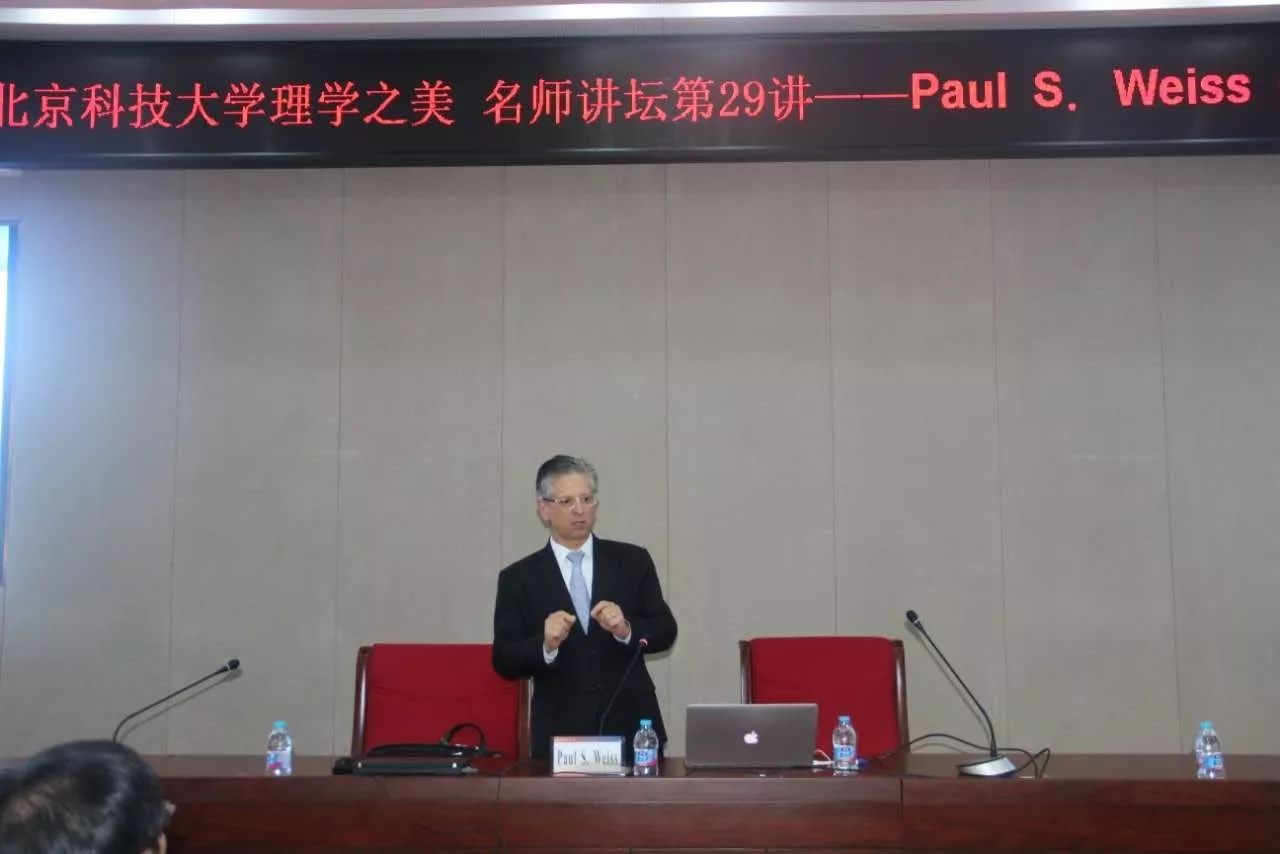加州大学洛杉矶分校Paul S. Weiss教授做客公司“理学之美”名师论坛
10月20日上午,来自加利佛尼亚大学洛杉矶分校的Paul S. Weiss教授做客公司“理学之美”名师讲坛,在建龙报告厅为化生师生带来了题为《Nanotechnology Approaches to Biological Heterogeneity and CellularTherapies》(生物异质性和细胞疗法的纳米技术途径)的精彩报告。经理李正平、副经理曹艳秋等领导和众多其他相关专业老师均参加本次“理学之美”学术交流活动。
Weiss教授简单介绍了大脑中的神经回路的功能和故障,操纵微生物运用纳米技术,以及酰胺氢键可视化、分子交换等研究内容。在此基础上,建立神经递质芯片项目,用以映射脑中的动态化学活性,由于难以分离与膜连接的受体蛋白,Weiss教授的课题组研发了一种可以在体内实现信号转导的场效应晶体管,并详细讲述该芯片作用原理和可行性等内容。

报告结束后 ,现场气氛依然很活跃,师生们提出系列学术问题,Weiss教授就在场师生的提问进行详细解答,为新进入科研领域的同学提出指导性的建议。
Weiss教授以深厚的科研功底、深入浅出的讲解、风趣幽默的言谈赢得了在场师生的热烈掌声。
近两个小时的报告精彩翔实、引人入胜,让在座的化生师生受益匪浅。
主讲人介绍:
姓名:Paul S. Weiss
单位:chemistry & biochemistry and ofmaterials science & engineering at UCLA
职称:professor of UCLA
Paul S. Weiss holds a UC Presidential Chair and is a distinguished professor of chemistry & biochemistry and of materialsscience & engineering at UCLA. He received his S.B. and S.M. degrees inchemistry from MIT in 1980 and his Ph.D. in chemistry from the University ofCalifornia at Berkeley in 1986. He was a postdoctoral member of technical staffat Bell Laboratories from 1986-88 and a visiting scientist at IBM AlmadenResearch Center from 1988-89. He served as the director of the California NanoSystemsInstitute and held the Fred Kavli Chair in NanoSystems Sciences at UCLA from2009-14. Before coming to UCLA, he was a distinguished professor of chemistryand physics at the Pennsylvania State University, where he began his academiccareer in 1989. His interdisciplinary research group includes chemists,physicists, biologists, materials scientists, mathematicians, electrical andmechanical engineers, computer scientists, clinicians, and physicianscientists. They focus on the ultimate limits of miniaturization, exploringthe atomic-scale chemical, physical, optical, mechanical, and electronicproperties of surfaces, interfaces, and supramolecular assemblies. They developnew techniques to expand the applicability and chemical specificity of scanningprobe microscopies. They apply these and other tools to study self- anddirected assembly, and molecular and nanoscale devices. They advancenanofabrication down to ever smaller scales and greater chemical specificity tooperate and to test functional molecular assemblies, and to connect these tothe biological and chemical worlds. Two major themes in his laboratory arecooperativity in functional molecules and single-molecule/assembly biologicalstructural and functional measurements. He has written over 300 publications,holds over 30 patents, and has given over 700 invited, plenary, keynote, andnamed lectures.


